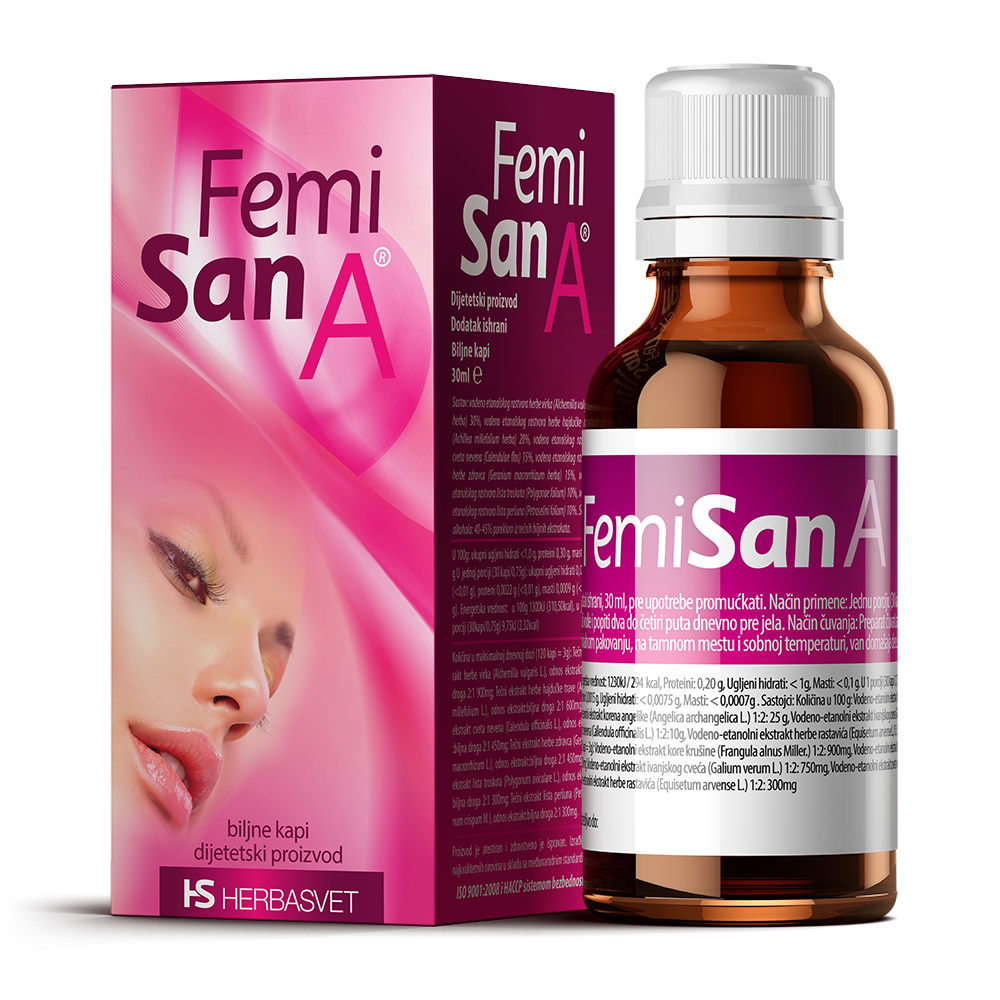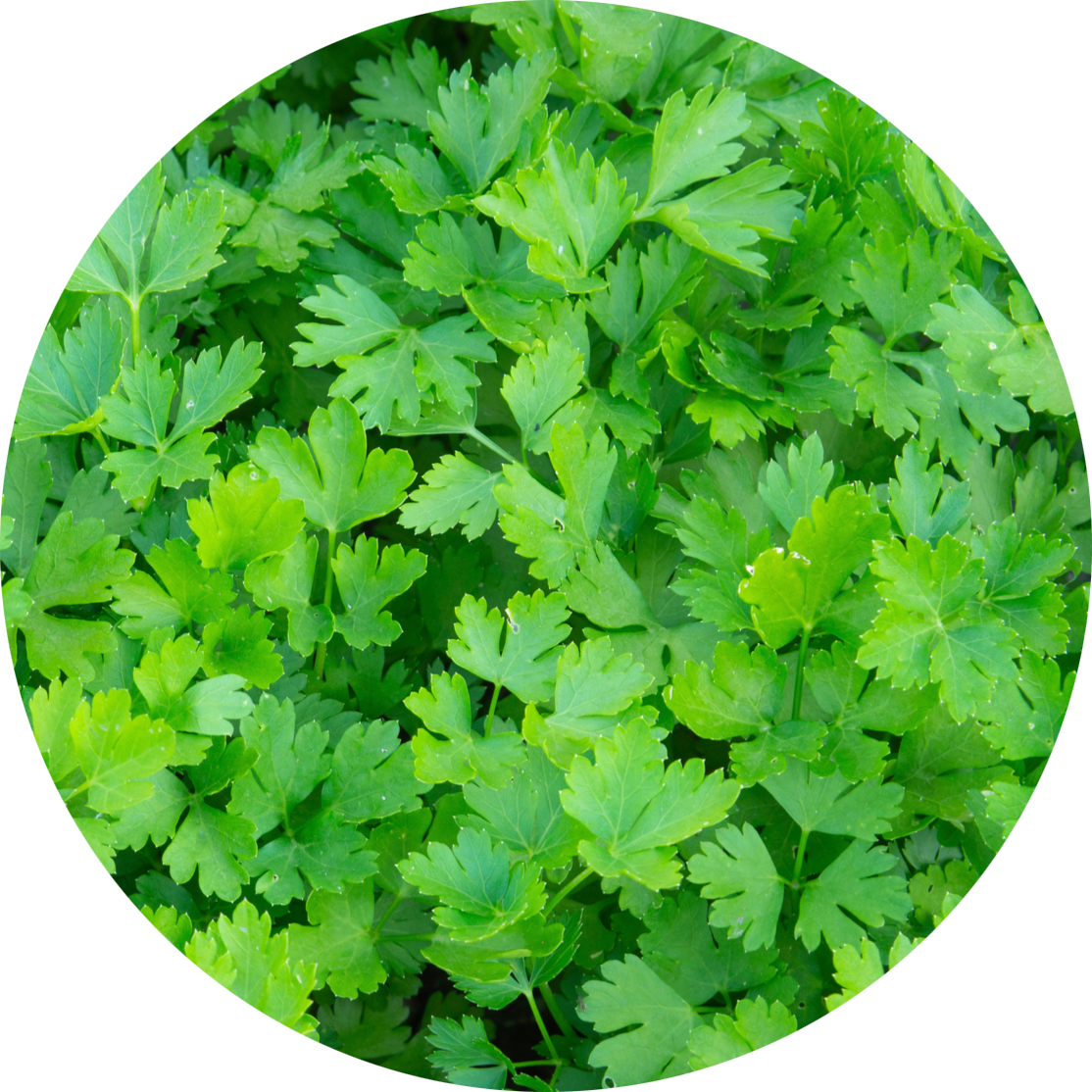(Petroselinum crispum)
Parsley is probably one of the most common herbs used for cooking all over the world. It is difficult to imagine a soup or a stew without its leaves or roots. Today we can buy different types of this herb: curly parsley (Petroselinum crispum) with ruffled leaves and Italian parsley (Petroselinum crispum neapolitanum) with flat leaves. The whole plant is edible, the root is an inevitable ingredient in soups and broths and is full of nutritious fibres; its leaf is one of the most popular herbs, but the following data mostly concern its seed, the most healing part of parsley.
Parsley is full of minerals and vitamins: A, C, K, E, folic acid, potassium, copper, zinc, calcium, manganese iron, as well as antioxidants – flavonoids, beta carotene, zeaxanthin and lutein… In addition to its extremely nutritious value, it has exceptional medicinal properties that help regulate our blood sugar levels, improve the health of the kidneys and the urinary tract, the reproductive organs, the cardiovascular and digestive systems, maintain good bone mass and immunity, improve liver function and even fight malignant cells. It is also excellent for the skin as it rejuvenates it and prevents acne, inflammation and pigmentation.
SEED OF HEALTH
Parsley seed – Petroselinum crispum – has particularly therapeutic properties; it has always been used in folk medicine. So let us enumerate what its healing properties are:
- Anti-cancerous: parsley contains apigenin, a flavonoid that inhibits the growth of breast cancer cells; due to its anticancer properties it is used as an additional therapy for the treatment of cancer and to alleviate the side effects of chemotherapy.
- Anti-microbial: parsley seed has the ability to kill microbes and prevent their development. Therefore, it is a natural shield against many infections, including Staphylococcus aureus, Listeria monocytogenes and Salmonella enterica.
- Anti-pyretic: parsley seed reduces raised body temperature and prevents fever with its detoxifying properties.
- Anti-rheumatic and anti-arthritic: since it accelerates the excretion of toxins and purifies the blood, parsley seed helps to flush out excess uric acid that accumulates in the joints and muscles, and thus reduces pain.
- Anti-septic: parsley seed prevents the development of bacteria in wounds and injuries and thus prevents sepsis.
- Anti-inflammatory and hepaprotective: antioxidants found in parsley reduce inflammation and effectively remove excess water and swelling and thus additionally prevent inflammatory processes and cleanse the blood and the liver.
- Antioxidant: A study has proven that parsley protects against oxidative stress and even eliminates the negative effects of opiates, thus protecting brain functions. The antioxidant effect of parsley has an extremely beneficial effect on kidney function, normalises the values of creatinine and urea and reduces pain caused by gallstones and kidney stones.
- Antithrombotic: parsley reduces blood viscosity and prevents blood clots, helping to protect against cardiovascular disease, including heart attack and stroke.
- Astringent: parsley seed has the ability to constrict blood vessels, thus preventing bleeding. This characteristic is especially important for women who suffer from heavy menstruation.
- Detoxifying: parsley seed accelerates the excretion of toxins from the body through urine, thus nipping in the bud numerous diseases, and thus improves digestion.
- Digestive: parsley seed promotes the secretion of digestive juices in the stomach, which speeds up digestion, eliminates gases and cleanses the intestines. Its carminative and laxative effect has been known since ancient times and is very useful for women in the second part of the cycle who suffer from pronounced symptoms of PMS. Parsley has a beneficial effect on the mucous membrane of the digestive organs and prevents the formation of ulcers. With its antispasmodic effect, parsley relieves cramps and abdominal pain.
- Diuretic: parsley accelerates the expulsion of fluids from the body; in addition to helping us with inflammation and swelling, it can also help us to be slimmer and to get rid of cellulite. This property is very important in cardiovascular patients because its diuretic effect helps reduce blood pressure.
- Emmenagogue and oestrogenic: parsley seed stimulates the secretion of hormones and strengthens the uterus and thus regulates the menstrual cycle; it helps with the absence of menstruation or irregular menstruation, but also relieves painful menstruation, cramps, nausea and a feeling of fatigue. As it promotes microcirculation in the ovaries and the uterus, it helps to effectively eliminate or prevent disorders of the female reproductive system.
- Hypotensive: when taken regularly, parsley seed has vasodilatory effect through which it lowers high blood pressure. It is rich in homocysteine which helps us reduce the level of bad cholesterol.
- Laxative: parsley seed effectively prevents constipation and the accumulation of faecal matter in the intestines; it increases intestinal peristalsis and facilitates the emptying of bowels. Parsley works by inhibiting sodium and thus water absorption, and stimulates electrolytes and water excretion.
- Stimulating: parsley seed affects the whole body – it stimulates the nerves, neurones, blood and lymph circulation, digestion and immunity. For that reason, it helps us to have more energy, as well as physical and mental stamina.
PARSLEY AND WOMEN
Parsley is a fertility plant. A study has shown that this medicinal herb increases sperm count and motility as well as testicular and prostate weight in male mice and has an even more beneficial effect on the fertility in women.
When it comes to women, we can easily say that parsley is worth having as a friend: in addition to cleansing our body and thus rejuvenating our appearance, giving us a radiant complexion and helping us get rid of cellulite, parsley seed plays a major role in treating amenorrhea, dysmenorrhea and menstrual pain. Parsley regulates menstrual bleeding and prevents heavy bleeding; it has the power to improve irregular cycles. With its inhibitory effect on the sodium-potassium pump, i.e. the transport of ions across the cell membrane, parsley improves fluid balance in the body and prevents water retention, thus soothing swellings, one of the common unpleasant premenstrual symptoms. Gynaecological problems are often accompanied by urinary problems, but parsley can also help in this instance: it successfully prevents urinary tract and bladder infections and expels bacteria.
Also, its ability to promote microcirculation additionally stimulates the ovaries and thus contributes to healthy ovulation and fertility. Microcirculation in the ovaries is a prerequisite for the normal functioning of these reproductive organs; during different phases of the cycle microcirculation changes, adapts in line with hormonal changes and increases during follicle growth. Today we know that polycystic ovary syndrome (PCOS) is associated with many cardiovascular risk factors, and that microvascular endothelial dysfunction has been observed in women who suffer from PCOS.
Ovarian tumours and ovarian tumour blood flow are also closely linked and parsley’s ability to improve the microcirculation comes to the fore, alongside a strong anti-tumour effect of apigenin in it. The effect of apigenin on stopping the growth of cervical, endometrial and ovarian cancers, has been proven, among other things. Apigenin also protects the thyroid gland from malignant cells, and we are aware that thyroid disorders have taken the form of a real epidemic in women.
All these are the reasons why parsley seed is an integral part of Femisan A drops: this completely natural product contains selected herbs that help with disorders of the female reproductive system: irregular, scarce, painful or abundant cycles, cysts, polycystic ovaries, fibroids, PMS, menstrual pain, endometriosis and infertility. When it comes to medicinal plants, regular use over a long period of time, persistence and patience are recommended. To nip problems in the bud, chop some fresh parsley and sprinkle it over your soup, and use Femisan A drops in half a glass of water before a meal.

